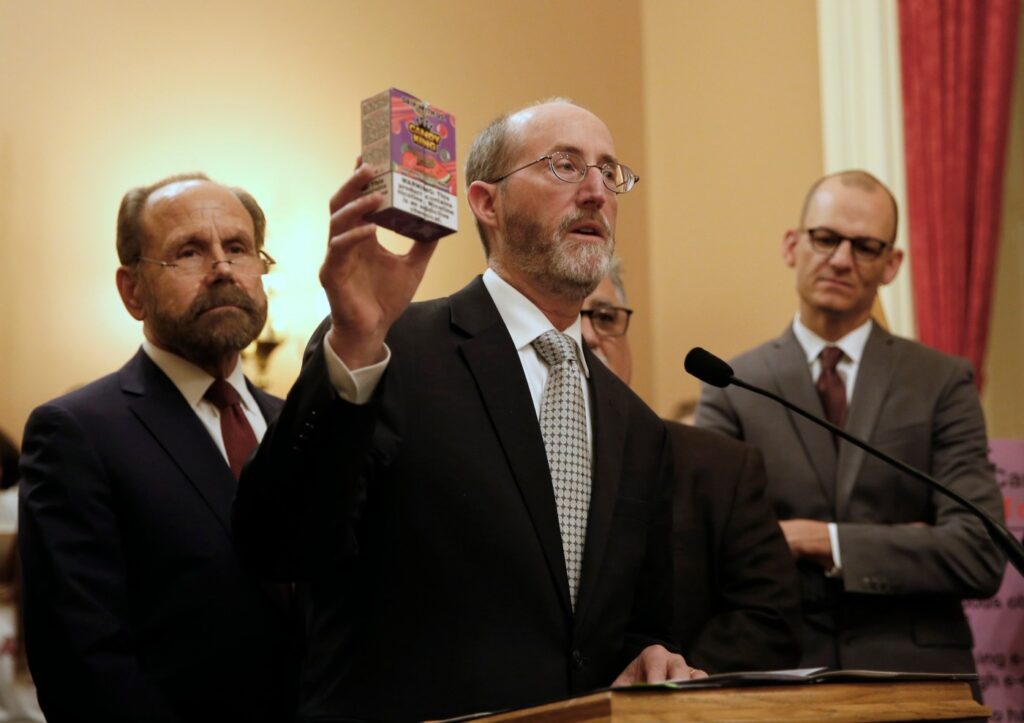
California has a long and dark history when it comes to solitary confinement. I know because I am a part of that history. I was incarcerated for 19 ½ years, with 15 of those 19 ½ years in solitary confinement. During this period I experienced the hell of isolation, and still live with the scars from that experience.
I am not the only one. Thousands of incarcerated people have suffered the harmful effects of solitary confinement in our state. Their struggle included statewide hunger strikes, where more than 30,000 incarcerated people protested the use of solitary confinement. Many of them, including myself, were part of a successful legal settlement known as Ashker v. Brown forced the California Department of Corrections (CDCR) to change some of its harmful practices.
Despite this established history, it appears that some members of the California legislature are willing to play politics with the pain that I and so many others have experienced. Last week, Sen. Steve Glazer, D-Orinda, pushed Senate Bill 733 through Senate Public Safety, without having a single community based organization in support of it.
SB 733 would purportedly require CDCR to collect data on the use of solitary confinement. The bill appears innocuous on its face, but sends a chilling message to California and to solitary survivors like me: That our lived experiences and stories do not matter, and we are not part of the policy making game in this state.
This was Glazer’s second go around with this bill. His initial idea involved codifying the Ashker v. Brown settlement that I mentioned earlier. However, Senator Glazer never bothered to check-in with the legal team leading that lawsuit, or even one of the numerous plaintiffs who have lived experience with this issue. In fact, Senator Glazer did not appear to know how to pronounce the term Ashker when he presented the bill last year. This would be comical if it were not so horrifying and insulting.
Senator Glazer’s bill represents a failure in both policy and practice. As a matter of policy Senator Glazer has not bothered to study the issue he claims to care about. If he had he would know that CDCR already collects and publishes data on the use of restricted housing.
As a matter of practice, Senator Glazer’s actions marginalize the voices of those impacted by the issue. When advocates did reach out to Senator Glazer’s office last year, his staff admitted that they had not met with any impacted individuals or solitary survivors before introducing their bill. Meeting with the impacted community on an issue is the minimum step an elected official would normally take before introducing legislation.
That was part of the reason why the bill did not pass the Senate Public Safety Committee in 2023. The main reason was that the California legislature had already gone on record to support comprehensive reform on the issue of solitary confinement with AB 280, the California Mandela Act. The Mandela Act introduces a 15 day limit on the use of solitary confinement, and ends the practice altogether for certain populations including those who are pregnant, disabled or part of certain age groups.
The California Mandela Act is supported by solitary survivors such as myself, who have lived experience with this issue and have come together to build power through solidarity and grassroots organizing. The bill is a testament to how far we have come as a movement, and to where the state needs to go on this issue.
Related Articles
Remember the great Lysander Spooner
Outsiders love bashing California but residents are souring on the state, too
California’s Senate race takes shape ahead of March’s primary
Excessive judicial deference gives administrative agencies a license to rewrite the law in their favor
Remember when Republicans would talk about fiscal responsibility? I miss that time.
Numerous scientific studies have documented that the harm from solitary confinement is ongoing, even after a person is released from incarceration. It shortens life spans, promotes self harm and numerous other negative physical and mental health outcomes.
All of this has been documented for decades. It is part of why the United Nations and the majority of the world recognize that solitary confinement is a form of torture, particularly when it exceeds 15 days.
That is why SB 733 is a complete and utter failure from a policy perspective. It erases the progress made in California and ignores the lived experience of solitary survivors such as myself. Worse than that it undercuts the Mandela Act, Assembly Bill 280, which has received widespread support in both houses of the legislature.
California can do better, and people who have experienced the torture that is solitary confinement deserve better.
